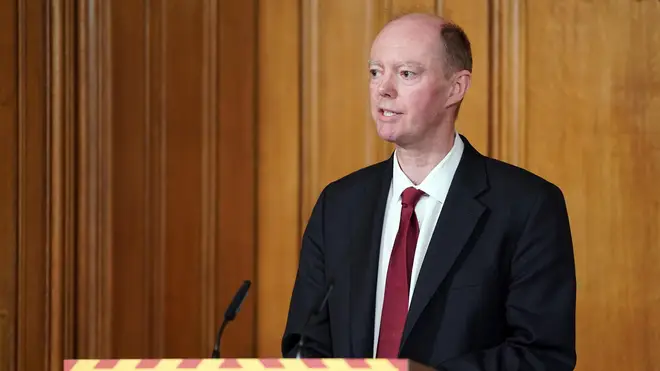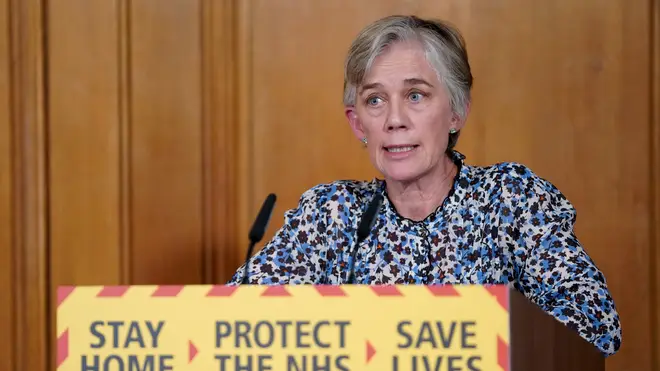
Ian Payne 4am - 7am
6 April 2020, 17:52

UK Chief Medical Officer says it is not known when coronavirus cases will peak
Social distancing measures put in place across the UK two weeks ago “are working,” but it is “would be a mistake” to start talking about easing them yet, health experts have said.
Speaking at the government’s daily coronavirus press briefing, Chief Medical Adviser Professor Chris Whitty said that it would be a mistake to discuss the next phase of managing the pandemic until there is confidence that the peak has been reached.
Professor Dame Angela McLean, deputy chief scientific adviser, also said it was "too early to tell yet" what the impact of the lockdown, imposed on March 23, had been.

In his first public appearance since recovering from coronavirus symptoms, Prof Whitty said: "The key thing is to get to the point where we are confident we have reached the peak and this is now beyond the peak and at that point I think it is possible to have a serious discussion about all the things we need to do step-by-step to move to the next phase of managing this.
"But I think to start having that discussion until we're confident that that's where we've got to, would I think be a mistake."

Dame Angela said the efforts by Britons to stay at home "are working", and said the growth in the number of Covid-19 cases in hospitals is "not as bad as it would have been if we had not made these efforts".
She said: "It is working but the big question is, is the virus spread slowing down enough to make hospital admissions stabilise and then even fall?"
As of 9am 6 April, 252,958 tests have concluded, with 13,069 tests on 5 April (excl. Northern Ireland).
— Department of Health and Social Care (@DHSCgovuk) April 6, 2020
208,837 people have been tested of which 51,608 tested positive.
As of 5pm on 5 April, of those hospitalised in the UK who tested positive for coronavirus 5,373 have died. pic.twitter.com/pHxcJHd3pj
Dame Angela said the hospital admissions data by region had risen "very steadily" until April 1 and then showed a "more complicated behaviour, starting we hope to slow down".
She added: "But it really is too soon to see the effects of the big changes we've all made to our lives from March 23 onwards because that's only two weeks ago and it takes several weeks after you've become infected for you to realise you're ill enough that you really need to be in hospital.
"We're all watching these numbers very, very carefully and we're very much hoping what's going to happen next is they will at least stop rising."
Dame Angela added: "We need a good, long time series of data on all of these stages of infection in order to be able to tell what the impact of the measures that came on March 23 are going to be.
"It's too early to tell yet, we need people to carry on following those instructions so that we can work out three weeks later what actually happens in hospitals."
"We need to know how well the current restrictions are working before we can say anything sensible about what the next stage might be."